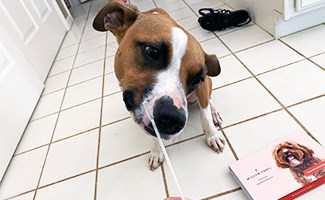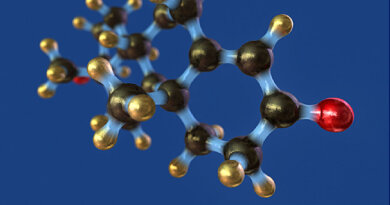Symptoms, Genetic Testing & More – CanineJournal.com
 The study of dog genetics is revealing more about the health of our canine companions than ever before. Hidden in the genetic code of some dog breeds is a mutation that can increase their susceptibility to drug toxicity, which can lead to serious health consequences.
The study of dog genetics is revealing more about the health of our canine companions than ever before. Hidden in the genetic code of some dog breeds is a mutation that can increase their susceptibility to drug toxicity, which can lead to serious health consequences.
Awareness of this defect is increasing, but some information and advice about it can be confusing or misinformed. Here, we explain the MDR1 (multi-drug resistance 1) gene, the breeds most affected, how to test for it, and what this genetic mutation could mean for your furry friend.
What Is MDR1 In Dogs?

The MDR1 gene mutation causes a faulty P-glycoprotein, which means that drugs and toxins can accumulate in the cerebrospinal fluid in large amounts — this buildup can negatively affect a dog’s brain activity.
How Is The Gene Mutation Inherited?
A gene mutation is an alteration, or mistake, in the genetic material that makes up a dog’s chromosomes. Dogs have two copies of every gene — one inherited from their mother and one from their father. Gene mutations may be inherited or acquired — they’re mistakes that happen when cells divide to produce new cells and the genetic material is copied incorrectly. Dogs inherit the MDR1 gene mutation from their parents.
MDR1 is an “autosomal incomplete dominant” inherited disease, meaning that dogs can be affected if they inherit the abnormal MDR1 gene from one or both parents. Dogs who have inherited faulty genes from both parents have full-scale adverse reactions to certain medications. Dogs who inherit only one faulty gene may also show milder effects, but they won’t be as severe as those with two copies of the mutated gene.
Breeds Most At Risk

The breeds most commonly at risk include:
- Collies
- Shetland Sheepdogs
- Old English Sheepdogs
- Australian Shepherds
- English Shepherds
- German Shepherds
- Long-Haired Whippets
- Silken Windhounds
What Are The Signs Of The MDR1 Mutation In Dogs?
Day-to-day, dogs with an MDR1 gene mutation can appear clinically normal. But dogs showing signs of drug toxicity may have vague neurological signs such as:
- Weakness when walking
- Lethargy
- Stumbling
- Appearing disorientated
In severe cases, dogs may exhibit these symptoms:
- Struggling to move
- Signs of seizures
- Becoming unconscious
These symptoms normally occur soon after administering one of the drugs listed below. If you’re concerned that your dog appears unwell after receiving medication, then seek urgent veterinary advice.
How To Test For MDR1 In Dogs
Getting your dog tested for MDR1 can shed light on whether he has this genetic mutation. It’s best to seek veterinary advice if you’re considering testing your dog for the MDR1 gene mutation. Your vet may be able to give your dog a DNA test to screen for MDR1. This commonly involves a simple swab from the inside of your dog’s cheek.
You can also do a similar DNA test from home. We recommend several at-home dog DNA test kits that can identify if your dog has the MDR1 mutation: Embark, Wisdom Panel, and EasyDNA. Then you can share your results with your veterinarian to determine a health plan for your pup.
What Drugs Should My Dog Avoid If He Tests Positive For The MDR1 Gene Mutation?
Not all drugs apply to the MDR1 mutation. Common medications that can affect a dog with the MDR1 mutation include:
- Antiparasitic medications, such as ivermectin, selamectin, milbemycin, and moxidectin
- Chemotherapy drugs, such as doxorubicin, vincristine, and vinblastine
- Sedative medication, such as acepromazine
- Apomorphine, a drug that can be used to induce vomiting
- Diarrhea medication, such as loperamide
It’s important to remember that having the MDR1 mutation doesn’t necessarily mean a dog should never receive these medications. By taking into account your dog’s MDR1 status, your veterinarian will be able to select appropriate medications and adjust the dose accordingly.
In many antiparasitic medications used to prevent heartworm and lungworm, the doses of ivermectin, selamectin, moxidectin, and milbemycin are low enough to be used safely in dogs with the MDR1 gene mutation. It may also be possible for your veterinarian to prescribe medications to prevent and treat heartworm that aren’t affected by the MDR1 gene mutation.
It’s always advisable to seek veterinary advice before using an antiparasitic medication, especially if you think your dog might have the MDR1 mutation.
Is It Safe To Vaccinate Dogs With A Known MDR1 Gene Mutation?
Yes. There is no link between vaccine reactions and the MDR1 gene mutation. In general, vaccinations form an important part of your dog’s preventative health care and help to keep our canine friends healthy and safe.
What Treatment Is Available For MDR1 Gene Mutations?
If your dog is showing signs of drug toxicity related to the MDR1 gene mutation then he may need to be hospitalized for intensive supportive care such as IV fluids, management of seizures, and neurological monitoring. Some medications may have a reversal agent that your veterinarian can administer.
If your dog is an at-risk breed or crossed with one of these breeds, it’s advisable to consult with your veterinarian about genetic testing so that your vet can avoid certain drugs or reduce the dose. Prevention is always better than cure.
Should I Get My Dog Tested?
This three-minute video from Best Friends Veterinary Center in Grafton, WI, features an owner of Aussies discussing with her veterinarian Nan Boss, DVM, why she got her pup tested for MDR1. Dr. Boss also explains who should consider DNA testing and why it’s so important.
What Should I Ask A Breeder?
If you want to adopt one of the breeds listed above or a mixed breed whose parents are one of these breeds, we recommend finding a reputable breeder. Enquire if the breeder has already carried out genetic testing for the MDR1 gene mutation on both parents. Dogs only need to be tested once in their lifetime as their DNA won’t change.
Breeders should give preference to breeding dogs with two normal copies of the MDR1 gene. If your breeder has already completed the testing, they should be able to provide you with a copy of the results. You should pass these results on to your veterinarian so they can make an appropriate plan when your dog needs treatment.






Your style is so unique compared to many other people. Thank you for publishing when you have the opportunity,Guess I will just make this bookmarked.2
Someone essentially help to make seriously articles I would state. This is the very first time I frequented your website page and thus far? I amazed with the research you made to make this particular publish extraordinary. Wonderful job!
I really appreciate this post. I¦ve been looking everywhere for this! Thank goodness I found it on Bing. You’ve made my day! Thx again
I am very happy to read this. This is the type of manual that needs to be given and not the accidental misinformation that is at the other blogs. Appreciate your sharing this best doc.
Hello. impressive job. I did not anticipate this. This is a great story. Thanks!
Thank you, I have recently been searching for information approximately this subject for a while and yours is the best I’ve came upon so far. But, what about the conclusion? Are you sure about the supply?
Its excellent as your other articles : D, thanks for putting up. “If Christ were here now there is one thing he would not be–a christian.” by Mark Twain.
Useful info. Lucky me I discovered your web site by chance, and I’m stunned why this twist of fate didn’t happened in advance! I bookmarked it.
Attractive section of content. I just stumbled upon your site and in accession capital to assert that I acquire in fact enjoyed account your blog posts. Any way I will be subscribing to your augment and even I achievement you access consistently fast.
Good ?V I should certainly pronounce, impressed with your website. I had no trouble navigating through all the tabs and related info ended up being truly easy to do to access. I recently found what I hoped for before you know it in the least. Quite unusual. Is likely to appreciate it for those who add forums or something, web site theme . a tones way for your customer to communicate. Nice task..